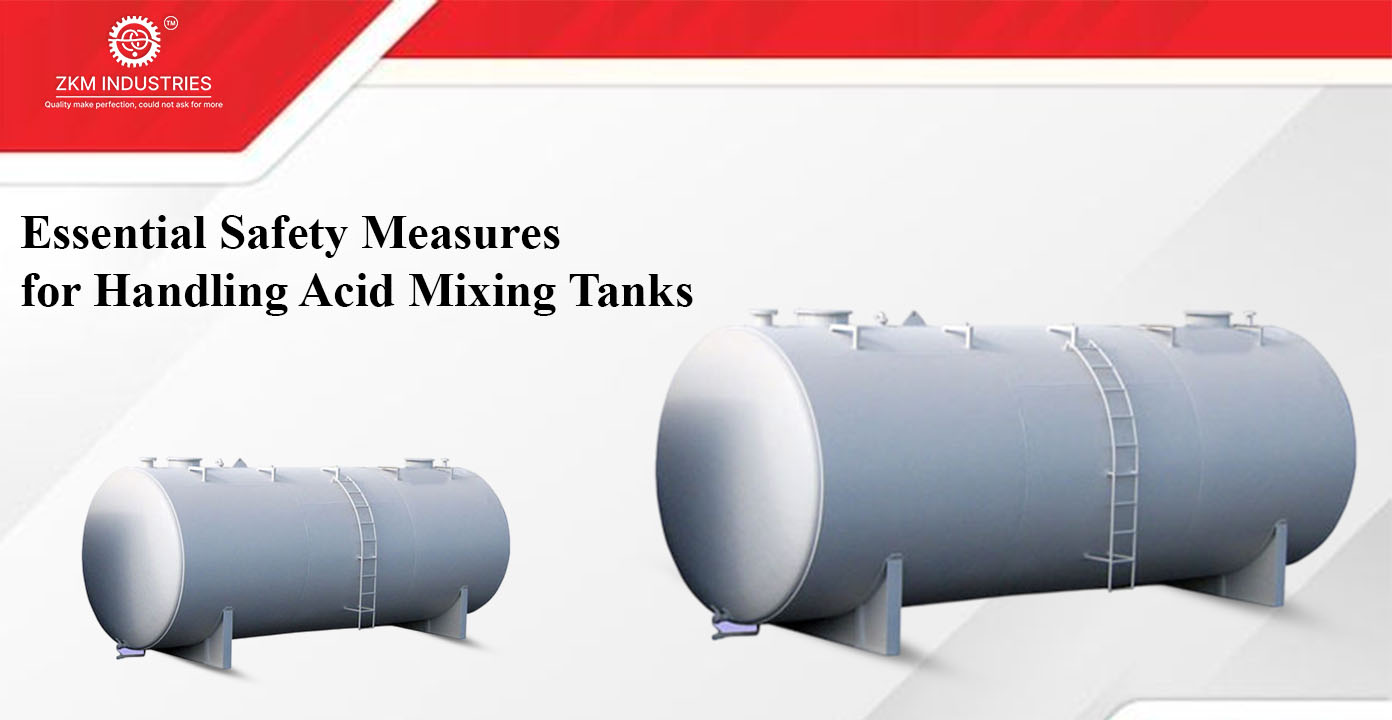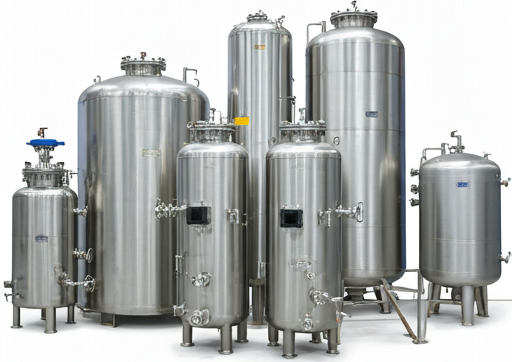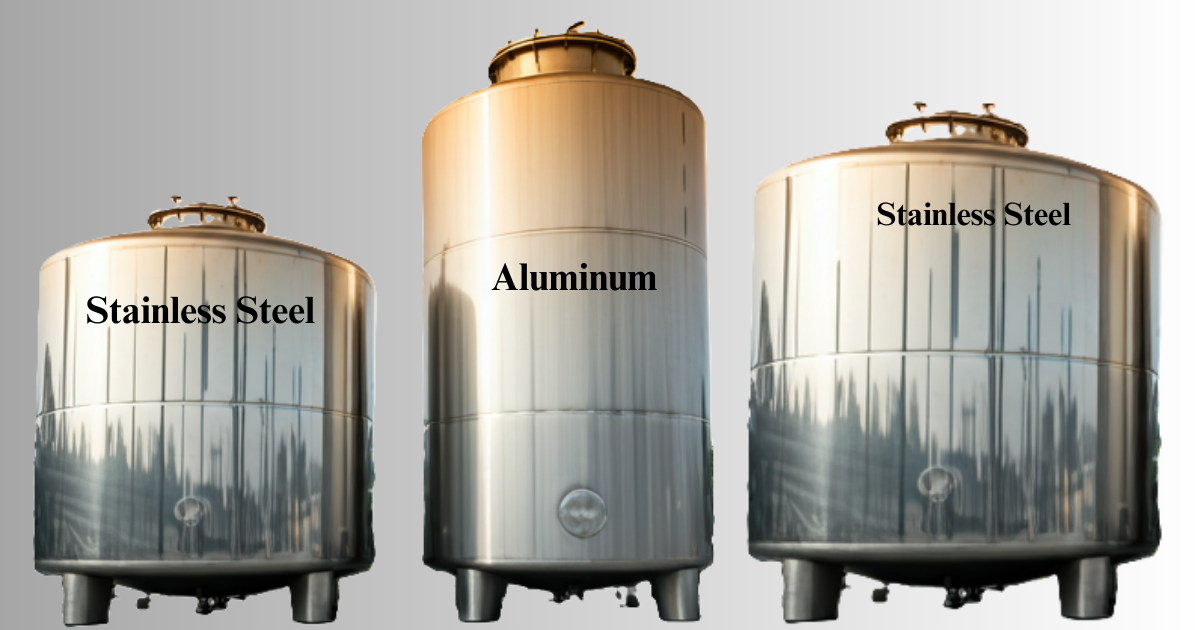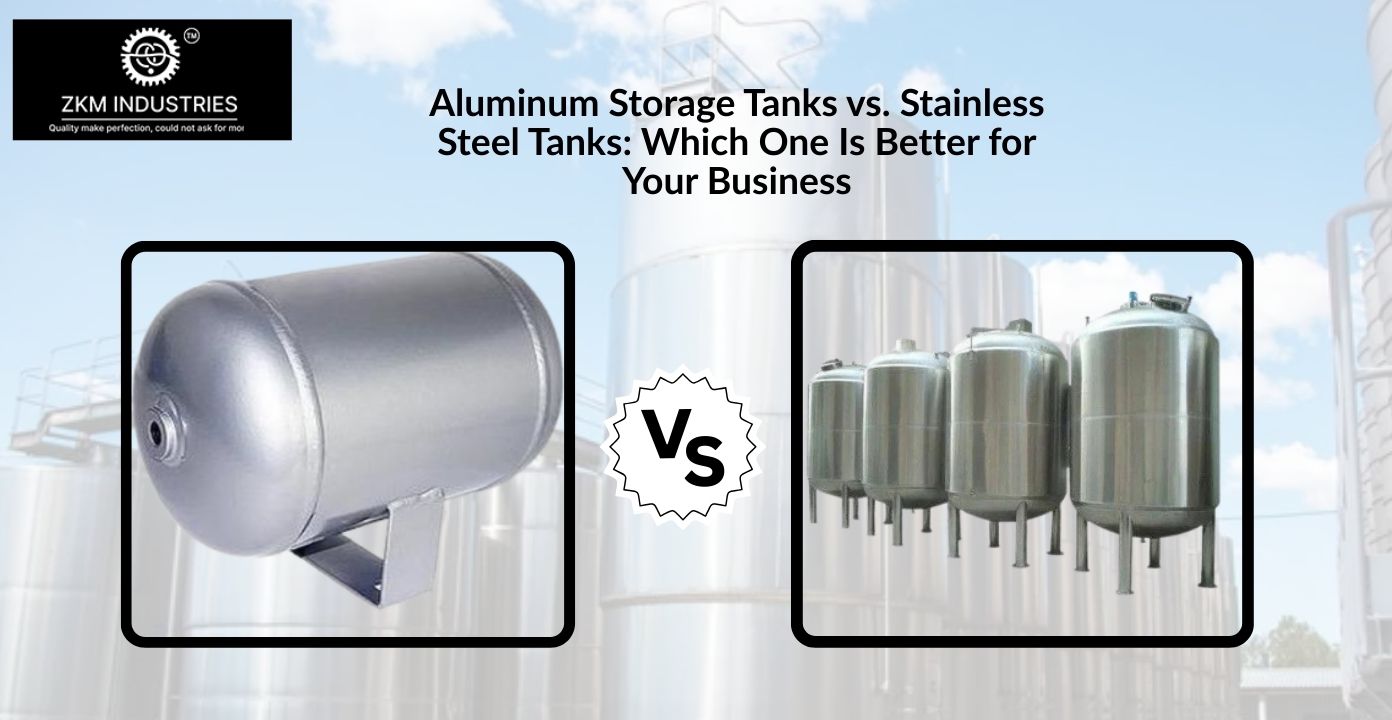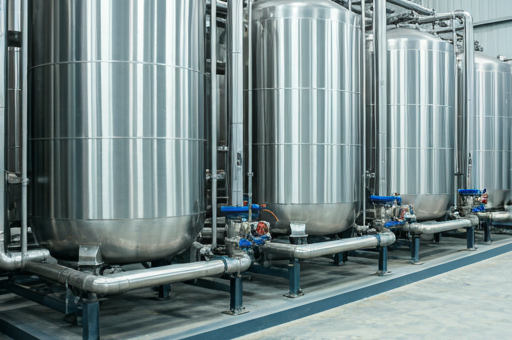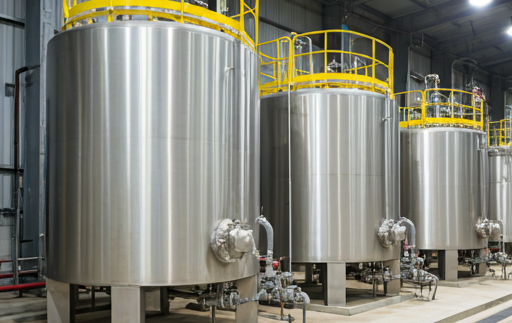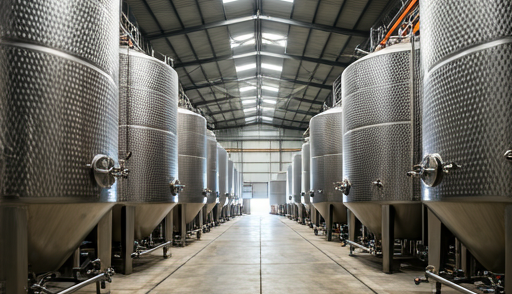
- 17 Dec 2024
SS Industrial Storage Tanks: A Look at SS304 Vessels, SS316 Reactors, and More
Industrial storage tanks are an essential part of countless industries, ranging from food processing to pharmaceuticals and chemicals. They ensure that liquids, gases, and solids are stored safely, maintaining their integrity. When it comes to choosing the right material for these tanks, stainless steel stands out due to its durability, resistance to corrosion, and hygienic properties. In this blog, we’ll dive into the details of different stainless steel storage solutions, focusing on SS304 vessels, SS316 reactors, and other stainless steel options, so you can make informed decisions for your business.
What are Stainless Steel Storage Tanks?
Stainless steel storage tanks are widely used across various industries to safely store liquids, gases, and even solids. Whether it’s a tank for water, chemicals, food ingredients, or pharmaceutical products, stainless steel is the material of choice. Known for its strength and longevity, stainless steel ensures that the contents stay safe and uncontaminated.
The main reasons industries prefer stainless steel are its:
- Corrosion Resistance: It doesn't rust or corrode easily, even when exposed to moisture or chemicals.
- Durability: Stainless steel tanks are built to last, even in harsh environments.
- Hygiene: It's easy to clean, making it the perfect material for storing food and medical products where cleanliness is paramount.
Explore Our SS Tanks
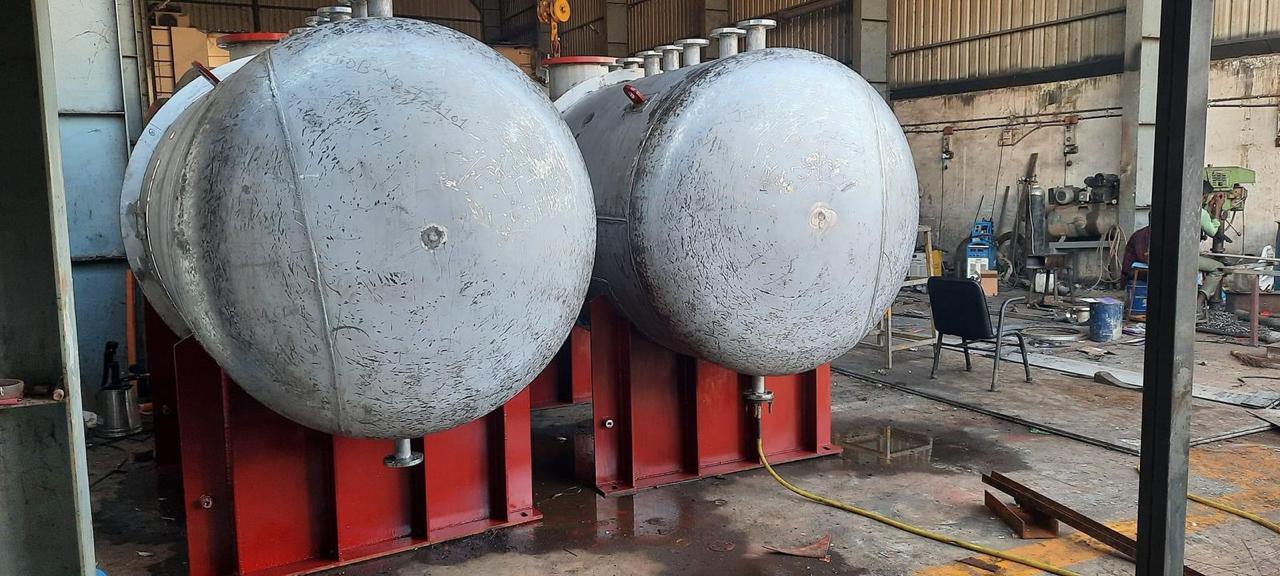

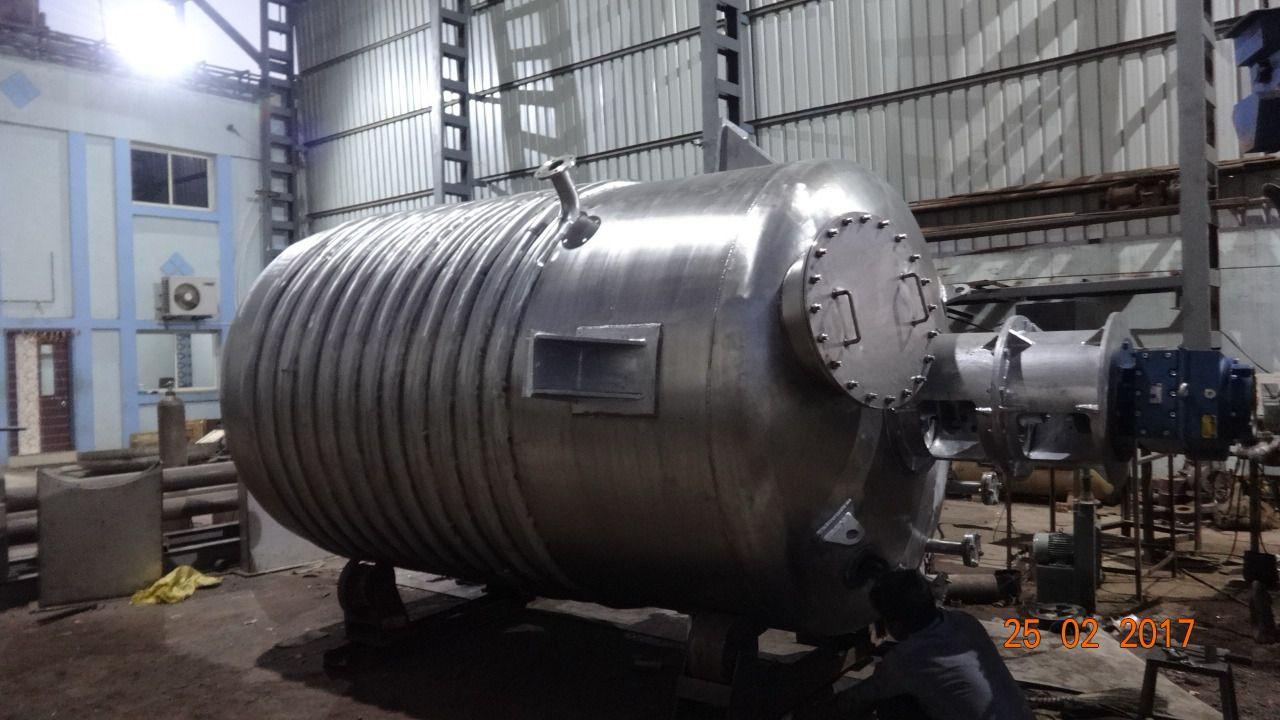
SS304 Vessels: Characteristics and Uses
SS304 is one of the most commonly used grades of stainless steel. It's often called 18/8 stainless steel because it contains 18% chromium and 8% nickel. This blend gives SS304 excellent resistance to rust and corrosion, making it a reliable choice for a range of industrial storage needs.
Why choose SS304?
- Corrosion Resistance: SS304 is highly resistant to rust and corrosion, making it ideal for environments where moisture or mild chemicals are involved.
- Strength and Durability: It’s a tough material that can withstand mechanical stress and last for many years.
- Hygienic Surface: Its non-reactive surface makes it an excellent choice for industries that require strict cleanliness standards.
Common Uses of SS304 Vessels:
- Food and Beverage: SS304 is widely used for storing food products, from dairy to beverages, where hygiene and durability are critical.
- Water Storage: It's often used in water tanks for its resistance to rust and the ability to store potable water safely.
- Pharmaceuticals: SS304 vessels are ideal for storing medical products, ensuring that the contents remain free from contamination.
Why it’s great:
- SS304 is cost-effective yet incredibly durable.
- It’s easy to clean and maintain, which is a huge advantage in industries that require top-notch hygiene standards.
- Its versatility makes it perfect for a wide variety of storage needs.
SS316 Reactors: Features and Benefits
SS316 is a higher-grade stainless steel compared to SS304. It contains molybdenum, which gives it an edge when it comes to resisting corrosion, especially in challenging environments. If SS304 is good, SS316 is even better for industries dealing with aggressive chemicals or high temperatures.
How does SS316 compare to SS304?
Corrosion Resistance: SS316 is far more resistant to corrosion, especially in the presence of chlorides or harsh chemicals. This makes it the go-to option for industries like pharmaceuticals, chemicals, and food processing where tougher conditions are at play.
Strength and Durability: SS316 holds up well even in high temperatures and harsh chemicals, ensuring that your storage vessels remain strong and reliable over time.
Uses of SS316 Reactors:
- Chemical Processing: SS316 is commonly used in reactors for the chemical industry, where it stores or processes hazardous substances.
- Pharmaceutical Manufacturing: SS316 is the preferred material for storage in pharmaceutical companies, thanks to its ability to maintain hygiene and withstand corrosive environments.
- Marine Applications: Due to its resistance to saltwater corrosion, SS316 is used in tanks and reactors in marine and offshore industries.
Benefits of SS316:
- SS316 has a longer lifespan, especially in environments where chemicals and high temperatures are involved.
- It provides better protection against corrosion in extremely challenging conditions, saving you from expensive repairs or replacements.
- It’s safer when storing sensitive or hazardous materials due to its superior chemical resistance.
Other Types of Stainless Steel Storage Solutions
While SS304 and SS316 are the most commonly used grades, there are other stainless steel options that can be more suitable depending on the specific needs of the industry.
- SS201: A more affordable grade, it’s used for less demanding applications where corrosion resistance isn’t as critical.
- SS310: Known for its resistance to high temperatures, SS310 is perfect for applications where heat resistance is key.
- SS2205: A duplex stainless steel, SS2205 combines the best of both worlds — strength and corrosion resistance, making it ideal for high-pressure or offshore storage applications.
Each grade has its own strengths, and choosing the right one can make a big difference in the performance and longevity of your storage tanks.
Key Considerations When Choosing SS Storage Tanks
When selecting the right stainless steel tank for your operation, here are a few things to consider:
- Size and Capacity: Make sure to choose the right size for your needs — too big, and you might waste space; too small, and it might not be sufficient.
- Material Compatibility: Ensure the stainless steel grade you choose is compatible with the materials you plan to store. Some grades, like SS316, are better suited for harsh chemicals, while SS304 may work well for food-grade products.
- Maintenance and Durability: Choose tanks that offer durability without the need for frequent maintenance. Stainless steel is low-maintenance, but certain grades hold up better under specific conditions.
- Certifications: Look for tanks that meet regulatory standards, such as FDA approval for food storage or ASME certifications for pressure vessels.
Benefits of Using Stainless Steel Storage Tanks
- Long-Term Durability: Stainless steel tanks last for decades, offering a high return on investment by reducing the need for replacements or repairs.
- Hygiene and Safety: Stainless steel is non-reactive, meaning it won’t leach harmful substances into the contents, ensuring your materials are safe.
- Eco-friendly: Stainless steel is 100% recyclable, making it a sustainable choice for industries that are focused on reducing their environmental footprint.
- Low Maintenance: These tanks are easy to clean, which is essential for maintaining the highest standards of hygiene, especially in food and pharmaceutical industries.
Conclusion
Stainless steel storage tanks, particularly SS304 vessels and SS316 reactors, are indispensable for a wide range of industrial applications. They offer unmatched strength, resistance to corrosion, and hygiene, making them a top choice for industries dealing with food, chemicals, pharmaceuticals, and more. By understanding the differences between the various grades of stainless steel, you can choose the best solution for your storage needs, ensuring that your products remain safe and uncontaminated.
If you're looking for high-quality stainless steel storage tanks tailored to your specific needs, contact ZKM Industries today! We specialize in providing reliable, durable, and custom storage solutions to keep your operations running smoothly for years to come.
FAQs
1. What are SS304 and SS316 stainless steel grades?
SS304 and SS316 are both grades of stainless steel commonly used for industrial storage tanks. SS304 is a versatile, corrosion-resistant grade, while SS316 offers superior resistance, particularly in harsh environments like marine or chemical applications, due to the addition of molybdenum.
2. Why is stainless steel the preferred material for industrial storage tanks?
Stainless steel is preferred due to its durability, high corrosion resistance, non-reactive surface, and ease of maintenance. These properties ensure the safety of the stored substances and make it ideal for industries such as food processing, pharmaceuticals, and chemicals.
3. What is the difference between SS304 and SS316?
The main difference is in their corrosion resistance. SS316 has a higher resistance to chemicals, acids, and saltwater, making it suitable for more demanding applications compared to SS304. SS304 is more cost-effective and suitable for milder environments.
4. What are SS304 vessels used for?
SS304 vessels are commonly used in industries like food and beverage processing, water storage, and pharmaceutical storage due to their excellent corrosion resistance and ability to maintain hygiene.
5. What are SS316 reactors commonly used for?
SS316 reactors are primarily used in the chemical and pharmaceutical industries, where resistance to harsh chemicals, acids, and high temperatures is essential. These reactors are also used in marine and offshore applications due to their superior corrosion resistance.
6. Can stainless steel storage tanks be customized?
Yes, stainless steel storage tanks can be customized in terms of size, shape, and design to meet the specific needs of an industry. Customization allows for better efficiency and suitability for different substances and environments.
7. What industries use SS stainless steel storage tanks?
SS stainless steel storage tanks are used across various industries, including food and beverage, pharmaceuticals, chemicals, oil and gas, and water treatment, for storing a wide range of materials like liquids, chemicals, and gases.
8. How long do stainless steel storage tanks last?
Stainless steel storage tanks are known for their longevity. With proper maintenance, they can last for decades, offering excellent return on investment by reducing the need for frequent replacements.
9. What are the maintenance requirements for stainless steel storage tanks?
Stainless steel storage tanks require minimal maintenance. Regular cleaning, inspection for corrosion or wear, and ensuring proper sealing and functionality are key to maintaining the tank’s integrity and performance.
10. Are stainless steel storage tanks safe?
Yes, stainless steel storage tanks are highly safe. Their non-reactive surface prevents contamination, and they are designed to meet stringent safety standards for storing hazardous or sensitive materials. They also provide excellent protection against leaks and spills.


